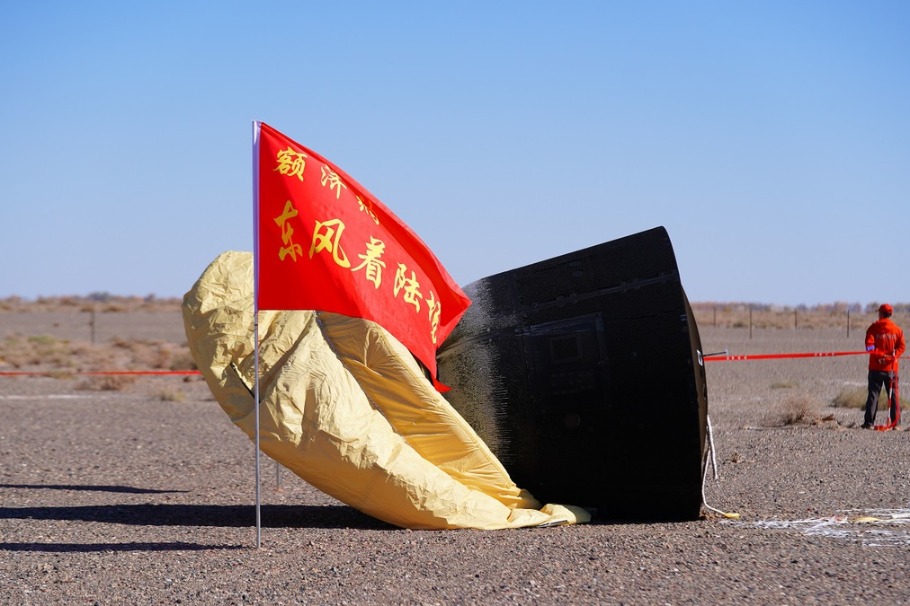China's journey toward becoming a financial power


The third plenary session of the 20th Central Committee of the Communist Party of China, held in July, resolved to comprehensively deepen reform to advance Chinese modernization and achieve high-quality development.
Finance is the lifeblood of an economy, crucial for building a strong country; as such, it is essential for advancing Chinese modernization. True, China has become a major financial power thanks to its huge market. But it still has to make strenuous efforts to become a truly strong financial power.
High-quality financial development is key to achieving high-quality development. Only through long-term accumulation of wealth can a country turn its advantages in production and trade into financial advantages, and develop from a strong trading power to a strong financial power.
The communique issued by the third plenary session said that sound macro regulation, along with effective governance, is essential for ensuring that China fully harnesses the institutional strengths of a socialist market economy. This means China needs to improve its macro regulation systems, and implement coordinated reforms in the fiscal, taxation, financial and other major sectors.
Financialization and high leveraging are notable characteristics in a modern economy. Under "high leveraging", financial factors easily reshape economic cycles into complex interactions with financial cycles, making it difficult to manage the macro-economy.
Traditional macroeconomic governance focuses on stabilizing economic cycle fluctuations and striking a balance between unemployment and inflation. Modern macroeconomic governance, however, pursues financial stability that seeks to balance broader economic and financial stability.
Managing the financial cycle, a new phenomenon in China, has theoretical significance — regulation and management are different from Western financial models so that they meet urgent practical demands — for safeguarding economic and financial security, which is essential to realize Chinese modernization.
The third plenum said the country is firmly committed to accomplishing the goals for this year's economic and social development, ensuring effective implementation of macro policy, while striving to boost domestic demand, prevent and defuse risks in the real estate sector, reduce local government debt, and promote small and medium-sized financial institutions, and other key sectors.
After the 2008 global financial crisis, the government implemented effective financial risk prevention and mitigation measures, facilitating the upward movement of the financial cycle. But the COVID-19 pandemic slowed monetary and credit growth, reduced consumer spending and private investment, and slackened asset prices, triggering the downward movement of the financial cycle. As a result, risks emerged in key areas such as the real estate, local government debt, and small and medium-sized financial institutions.
Therefore, the government's macro-control policy should be aimed at helping the private sector prevent and defuse financial risks and achieve economic recovery, because the most significant feature of the downward movement of the financial cycle is the private sector's deleveraging.
Western governments, in general, do not intervene during the financial cycle's upward movement, which leads to bursting of asset bubbles and thus a severe financial crisis. On the other hand, China ensures that finance serves the real economy. In 2013, China launched a campaign to end shadow banking by, among other things, intervening during the financial cycle's upward movement. Consequently, the proportion of the financial industry's added value to GDP has remained stable around 8 percent and the ratio of shadow banking to GDP has declined from the peak of 81.9 percent in 2016 to 39.2 percent in 2023.
Both economic and financial cycles have upward and downward movements. The higher the upward movement, the deeper the downward movement would be. So, by controlling the ascent of the financial cycle, the government prevented the downward movement from hitting a record low.
Governments in Western developed economies intervene during the financial cycle's downward movement for two reasons. First, they do so to counterbalance the effects of the private sector's deleveraging by increasing spending. Instead of reducing spending, they use expansionary policies to boost the economy and break the vicious circle of low growth increasing the debt burden, and high debt suppressing growth.
Second, Western governments balance various interests and leverage the redistributive effects of policies to overcome a financial crisis. Also, Western governments often accord priority to large financial institutions in their bailout policy, harming the interests of the public and widening the wealth gap.
China is pursuing high-quality development and Chinese modernization to better serve the people, especially to improve people's livelihoods, and realize common prosperity. So its fiscal structure favors grassroots operations and promotes technological breakthroughs.
However, it should also take measures to root out some local financing platforms, real estate enterprises and financial institutions that expanded suddenly and excessively in the early stages of their development, and use central funds to ensure apartments are handed over to homeowners on time, and help viable property developers fix their balance sheets. Private sector deleveraging is a long, complicated process that can be fixed only through systemic and gradual reform.
In sum, the plenum has taken measures to advance Chinese modernization, improve the governance of the financial cycle and promote high-quality financial development.
The author is the director at the Macroeconomics Research Center, Institute of Economics, Chinese Academy of Social Sciences. The views don't necessarily represent those of China Daily.
If you have a specific expertise, or would like to share your thought about our stories, then send us your writings at opinion@chinadaily.com.cn, and comment@chinadaily.com.cn.


































